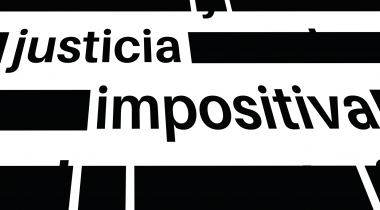
Nick Shaxson ■ The Credit Suisse scandal: echoes of Too Big To Jail

We’ve had a bit of time to look through the landmark Credit Suisse report from the U.S. Permanent Subcommittee on Investigations, outlining industrial-scale Swiss corruption. It contains some pretty instructive things about some of the ways banks use to get around international initiatives, and about those initiatives themselves. Here are some highlights.
First, despite all the endless claptrap about Switzerland having ‘stopped being a tax haven’ – they haven’t even given very much to the United States, which has been vastly more courageous (and powerful) in taking on the Swiss banking criminal machine than any other country, including several of Switzerland’s neighbours who really should know better. For instance:
“To date, due to Swiss Government restrictions, the United States has obtained the names of only about 230 U.S. clients with hidden accounts at Credit Suisse.”
This is substantially less than one percent of the over 22,000 U.S. accountholders with Swiss accounts at Credit Suisse. The U.S. Department of Justice
“did not use any of the authorities and remedies available to it in U.S. courts” to get more information from Swiss banks, and “DOJ explicitly surrendered the right of the United States to obtain U.S. client names from the banks.
. . .
despite being subjected to a years-long, painstaking, expensive, and unproductive treaty process that repeatedly denied U.S. access to information about U.S. clients engaged in U.S. tax evasion with the help of Swiss banks, DOJ never returned to its earlier posture of using U.S.-based tools to obtain that information.”
So the U.S. has been more courageous, but not nearly courageous enough. . And let’s not forget: this is the same Department of Justice that decided that some banks were Too Big To Jail. And there’s a whole lot more on the DOJ’s failures.
And as usual, the Swiss criminal banking fraternity has persuaded the Swiss government to lie and obfuscate to keep as much of their gold as they possibly can. When is the Swiss banking industry – and indeed Switzerland’s government – going to issue a public apology for their behaviour? So far, all we get is a kind of ‘they are picking on us’ mentality.
On a more technical level, it’s interesting to note that:
“Swiss bankers helped customers mask their Swiss accounts by referring them to “intermediaries” that could form offshore shell entities for them and by opening accounts in the name of those offshore entities.”
And of course the offshore entities themselves – in the notoriously lax, laissez-faire world of offshore, “didn’t follow the proper formalities” in managing the accounts, seemingly allowing beneficial owners to bypass the bank’s relationship managers and making the account decisions themselves.
Another issue concerns the U.S. Foreign Account Tax Compliance Act (FATCA), an emerging U.S.-led tool for fighting tax evasion. The report says:
“Among other problems, the FATCA regulatory loopholes will require disclosure of only the largest dollar accounts; they will permit banks to ignore, in most cases, bank account information that is kept on paper rather than electronically; they will allow banks to treat accounts opened by offshore shell entities as non-U.S. accounts even when the entity is owned by a U.S. taxpayer; and the remaining disclosure requirements can be easily circumvented by U.S. persons opening accounts below the reporting thresholds at more than one bank.”
We are conducting our own analysis on FATCA and will produce further information in due course.
All in all, we’re delighted to see the Permanent Subcommmittee doing what it does best: expose criminality and wrongdoing. We’re saddened that the U.S., in the grip of Financial Capture, hasn’t found the cojones to do a proper job. But for now it’s the best that the world has got.
Update 1: we’ve just noticed this story, entitled “Credit Suisse CEO says a few bankers are to blame for $10bn in tax evasion.” The old ‘a few rotten apples’ defence.
“Some Swiss-based private bankers went to great lengths to disguise their bad conduct from Credit Suisse executive management,” Dougan said during his testimony in Washington DC.
Oh yeah? Here’s a more accurate description, Mr. Dougan: it’s institutionalised corruption and criminality in the entire Swiss banking system, for over a century.
Oh, and here are some Swiss bankers, astonished by Dougan’s words: tax evasion, they say, ‘was a business model.’ We wouldn’t disagree with that – except that the word ‘was’ should be ‘is.’
Update 2: a correspondent writes:
“For all the huffing and puffing of the US govt on the “bad” Swiss bankers, just how many bankers based in NY and Miami, for example, have been doing, and are possibly continuing to do, the exact same type of business in Latin America?
Putting the odd Swiss banker in jail is a distraction in some ways. An effective penalty – and thus deterrent – would be to cut off the bank’s business where it hurts – close down their correspondent banking operation in the USA, revoke the licence. Soooo, why don’t they do it …?
Possible reasons illustrated by such scenarios as Obama playing golf with the UBS head perhaps?
Related articles

The secrecy enablers strike back: weaponising privacy against transparency
Privacy-Washing & Beneficial Ownership Transparency
26 March 2024

New Tax Justice Network podcast website launched!

El secreto fiscal…tiene cara de mujer: January 2024 Spanish language tax justice podcast, Justicia ImPositiva

Tax Justice Network Arabic podcast #73: ملخص 2023

Get rich cheating in our (educational) tax dodgers version of monopoly

New report on how to fix beneficial ownership frameworks, so they actually work

The Tax Justice Network’s most read pieces in 2023

La victoria de Milei y su repercusión: December 2023 Spanish language tax justice podcast, Justicia ImPositiva


